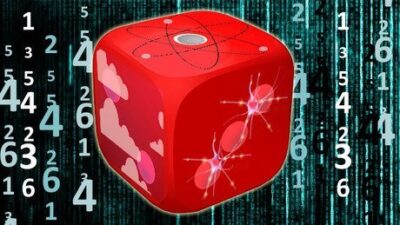Randomness is a term we often encounter in daily conversations, science, mathematics, and even philosophy. But what does it really mean? How do we und
Randomness is a term we often encounter in daily conversations, science, mathematics, and even philosophy. But what does it really mean? How do we understand something that is unpredictable or lacks pattern? This article explores the concept of randomness, its applications, and why it matters in various fields.
What is Randomness?
Randomness refers to the lack of pattern, order, or predictability in events. When something is random, its outcome cannot be precisely predicted beforehand. For example, when you flip a fair coin, you cannot know in advance whether it will land on heads or tails. This unpredictability is the essence of randomness.
However, randomness is not just about unpredictability. It also implies fairness and equal probability. In the coin toss, each outcome has an equal chance of occurring, making the process random and unbiased.
Randomness in Everyday Life
Randomness touches many aspects of our everyday experience, even if we don’t always notice it.
- Weather: Weather patterns often appear random due to the immense number of factors influencing them. While meteorologists can predict weather trends, sudden changes sometimes feel completely unpredictable.
- Games and Gambling: Dice rolls, card shuffles, and lottery draws rely on randomness to ensure fairness and excitement. Without randomness, these games would become predictable and lose their thrill.
- Decision Making: People often use randomness to make decisions, such as flipping a coin or picking a name from a hat, to avoid bias.
Randomness in Mathematics and Statistics
Mathematics provides tools to describe and analyze randomness. The branch that deals with this is called probability theory.
- Random Variables: A random variable is a mathematical way of describing a variable whose values depend on chance.
- Probability Distributions: These describe how likely different outcomes are. For example, the normal distribution (bell curve) is used to model many natural random phenomena.
- Statistical Analysis: Understanding randomness helps statisticians interpret data and differentiate between true signals and random noise.
Randomness in Science
Science often grapples with randomness when studying natural phenomena.
- Quantum Mechanics: At the subatomic level, particles behave in ways that are fundamentally random. This unpredictability is not due to lack of knowledge but is intrinsic to nature itself.
- Genetics: Random mutations in DNA contribute to genetic diversity, driving evolution.
- Chaos Theory: Some systems, like the weather or ecosystems, are highly sensitive to initial conditions, making their behavior appear random even though they follow deterministic rules.

Randomness in Computer Science
Computers, which operate on strict logical rules, surprisingly make extensive use of randomness.
- Random Number Generation: Computers use algorithms to generate sequences of numbers that appear random, known as pseudorandom numbers. These are essential for simulations, cryptography, and gaming.
- Algorithms: Some algorithms use randomness to improve efficiency or security, like randomized search algorithms or cryptographic protocols.
- Machine Learning: Randomness is employed in data sampling, initialization, and stochastic processes that help machines learn from data.
Philosophical Perspectives on Randomness
Philosophers debate the nature of randomness. Is randomness real, or just a reflection of human ignorance?
- Determinism vs. Indeterminism: Determinists believe every event is caused by previous events, implying no true randomness. Indeterminists argue that some events occur without cause, genuinely random.
- Free Will: The question of whether human choices are random or determined ties into the broader discussion on free will.
The Importance of Randomness
Randomness is crucial because it introduces variability and novelty into systems. Without randomness:
- Games and lotteries would be boring.
- Scientific experiments could not test hypotheses properly.
- Cryptographic systems would be insecure.
- Evolutionary processes would lack diversity.
Challenges with Randomness
Although randomness is valuable, it presents challenges.
- Predictability: In some contexts, randomness reduces predictability, making planning difficult.
- Randomness Quality: In computers, generating truly random numbers is hard; pseudorandom numbers can be predictable if the algorithm is known.
- Misinterpretation: People often misunderstand randomness, seeing patterns where none exist, leading to biases and incorrect conclusions (like gambling fallacies).
FAQs about Randomness
Q1: What is the difference between randomness and chance?
Randomness refers to unpredictability and lack of pattern, while chance is the probability or likelihood of an event occurring. Chance quantifies randomness.
Q2: Can something truly be random?
In classical physics, randomness often results from incomplete knowledge, but in quantum mechanics, some events are inherently random.
Q3: How do computers generate random numbers?
Most computers use pseudorandom number generators (PRNGs) that use algorithms to produce sequences that appear random but are deterministic if the initial seed is known. Some systems use physical processes for true randomness.
Q4: Why is randomness important in cryptography?
Randomness ensures keys and cryptographic processes are unpredictable, preventing attackers from guessing secrets.
Q5: Can humans create randomness?
Humans can attempt to produce random sequences, but psychological studies show humans are poor at generating truly random patterns.
Q6: How does randomness affect scientific experiments?
Randomness helps scientists design experiments with unbiased samples and assess whether results are due to chance or real effects.
Q7: What is a random variable?
A random variable is a variable whose possible values result from a random phenomenon, such as rolling a dice.
Q8: Is randomness the same as chaos?
Chaos refers to systems that are highly sensitive to initial conditions, leading to seemingly unpredictable behavior, but they are deterministic. Randomness implies inherent unpredictability without underlying deterministic rules.
Randomness is a fascinating and multi-dimensional concept that influences many areas of our lives, science, and technology. Whether it’s the flip of a coin, the roll of dice, or the behavior of quantum particles, understanding randomness helps us grasp the uncertainty and complexity of the world around us. If you want to delve deeper, exploring fields like probability theory, quantum physics, and algorithm design can offer even richer insights.
More Info: primereport




COMMENTS